Coronavirus: NI businesses welcome relaxed rules for Christmas
- Published
- comments
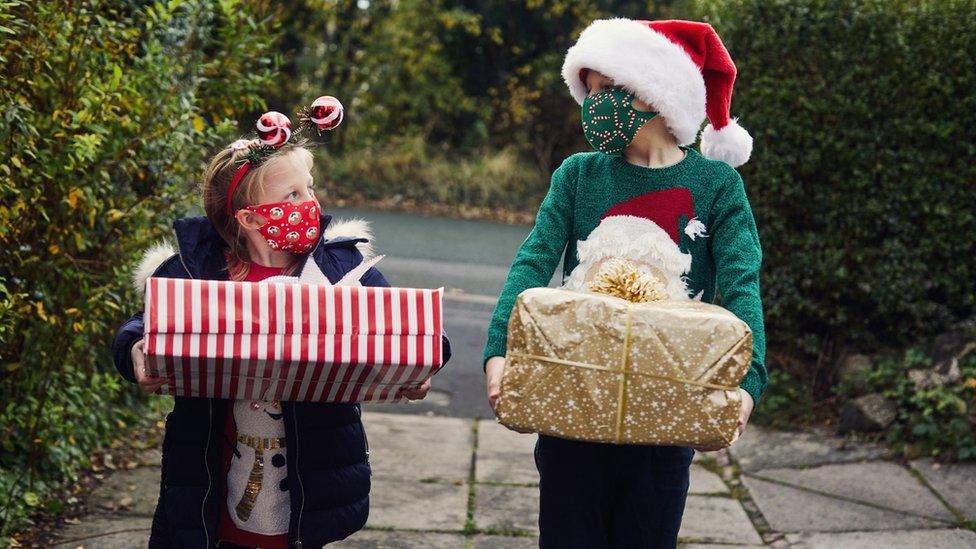
Some coronavirus restrictions are being eased from next Friday
The business community has welcomed comments from the first minister that there will be no further Covid-19 restrictions before Christmas.
Non-essential retail and some parts of the hospitality sector can reopen next Friday, the NI Executive agreed on Thursday.
Pubs that do not serve food will have to remain shut.
But health professionals have warned there will be an increase in transmission due to the eased rules.
Many hospitality businesses, including restaurants, cafes and hotels, can resume trading but must be closed at 23:00 GMT each day.
"We're trying to make sure people have a good Christmas and can come together in a safe way," First Minister Arlene Foster said on Thursday.
The DUP leader said guidance would be issued for several sectors so that they could operate safely, and said there was a need to provide more financial support to drink-only pubs.
Deputy First Minister Michelle O'Neill described the relaxations as "measured" and would allow people to move around "a bit more freely", but acknowledged it came with a risk.
No further restrictions before Christmas - Foster
The executive agreed on Thursday that:
Close-contact services such as hairdressers, beauty salons and barbers will be allowed to reopen but only by appointment and with social distancing mitigations in place
Social distancing within cafes and restaurants is to be set at 2m (6ft 7in)
"Christmas bubbles" of three households will not have a limit on the number of people contained in them
Churches can resume more services, while weddings and funerals will have their cap of 25 people lifted - instead, a risk assessment will be carried out to determine how many people a venue can safely accommodate
Gyms will be able to reopen for individual training but not for classes
Indoor sport is also unlikely to be allowed to resume
Covid-19: Stormont's key coronavirus moments
The chief executive of Newry Chamber of Commerce welcomed a safe reopening of non-essential retail.
Colm Shannon told BBC Radio Ulster's Good Morning Ulster programme that there will be longer opening times in the area and council staff will be on the high street, to help with the flow of people.
He said that "personal responsibility" was also important, urging shoppers to "respect the guidelines that are in place".
"We have these two weeks now to try and recover some of the grounds but we do need to think about the future as well."
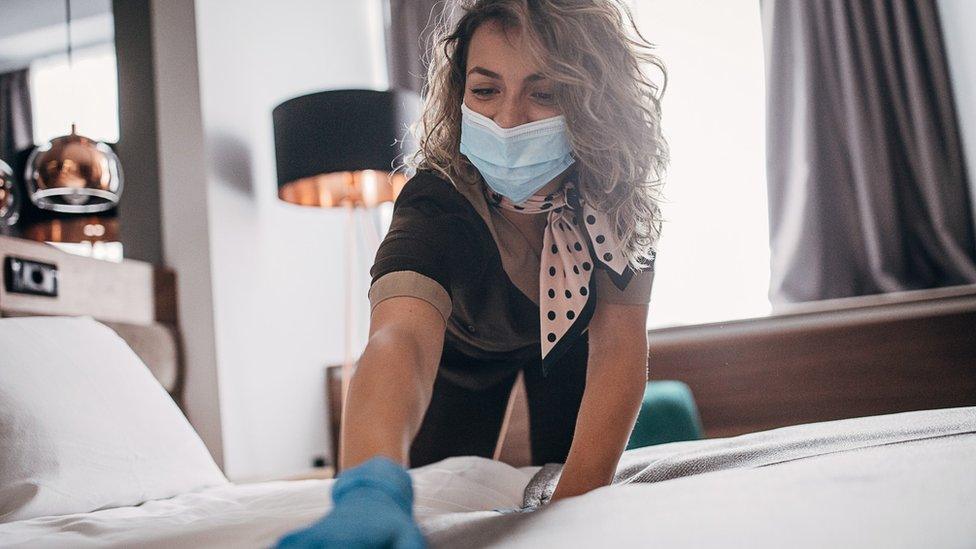
Northern Ireland Hotels Federation chief executive Janice Gault said that hotels would reopen "in a responsible manner with the health of guests and staff to the fore".
"Christmas is a vital trading period for the hotel industry with many guests checking in with their families over the festive season," she said.
"This year will be different, but hotels are determined that those who arrive will have an excellent experience after what has been a very difficult year for everyone."
Londonderry hotel director Ciaran O'Neill said he was "surprised but glad" at the decision.
"Stormont have finally decided to give us proper notice on this and give us a week to reopen," said Mr O'Neill.
"We have been taking bookings with asterixis now for about six weeks so every week we have to ring people to cancel or move their booking to a different date."
However, Mr O'Neill said his hotel is still operating "under 50% capacity", adding "we need to be mindful of that".
'Bitter pill to swallow'
But owners of drink-only pubs have criticised the executive for the decision to keep them shut.
West Belfast bar owner Gerard Keenan has only opened his business for three weeks since March.
"We kind of knew that was going to happen but up until the point that somebody tells you, it's still a bitter pill to swallow," said Mr Keenan.
"It's just the future, I'm worried now about the future, but I'm grateful now that we're getting some financial help."
He described the situation as "brutal", adding "the stigma now that's attached to wet pubs, it's killing us".
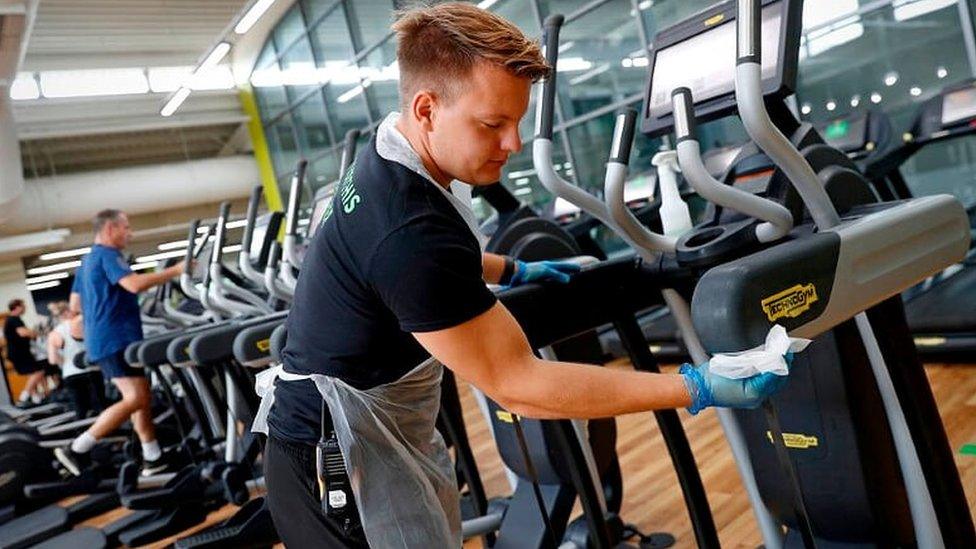
Gyms will also be able to reopen under the rules agreed on Thursday
Dr Tom Black, the Northern Ireland chairman of the British Medical Association, said the easing of the restrictions appeared to be a "pragmatic decision".
"It is a calculated risk because when you have a holiday period and people meet up the transmission of the virus increases," he told the BBC's The View programme.
"We will have in the health service in Northern Ireland a very busy time in the first three weeks in January, that seems inevitable.
"We will be sitting down to a banquet of consequences with increased admissions to hospital and more people in intensive care."
Intervention
The latest medical and scientific advice given to ministers indicates that the R-number - the average number of people that one infected person will pass the virus to - is about one.
Stormont ministers have been told that if the R-number can be maintained at 1.6 or below then no intervention, in terms of further restrictions, would be required until the end of December/beginning of January.
But if it was to rise as high as 1.8 then intervention would be required "a few days earlier than this", according to a Stormont briefing paper, external.
A vaccine will be available in Northern Ireland from next week, after the UK drugs regulator gave approval in record time.

In other coronavirus related developments:
The first doses of the Pfizer/BioNTech Covid-19 vaccine arrived in Northern Ireland
Restaurants, cafes, hotels and some pubs in the Republic of Ireland are reopening on Friday in a further easing of Covid-19 restrictions.
Covid-related deaths in Northern Ireland fall for the first time in two months, according to statistics agency Nisra
One of NI's leading performers has criticised the NI Executive for not allowing venues and theatres to reopen safely
Universities in NI are to move all teaching online by 9 December to allow students to return home for Christmas
Related topics
- Published8 January 2021
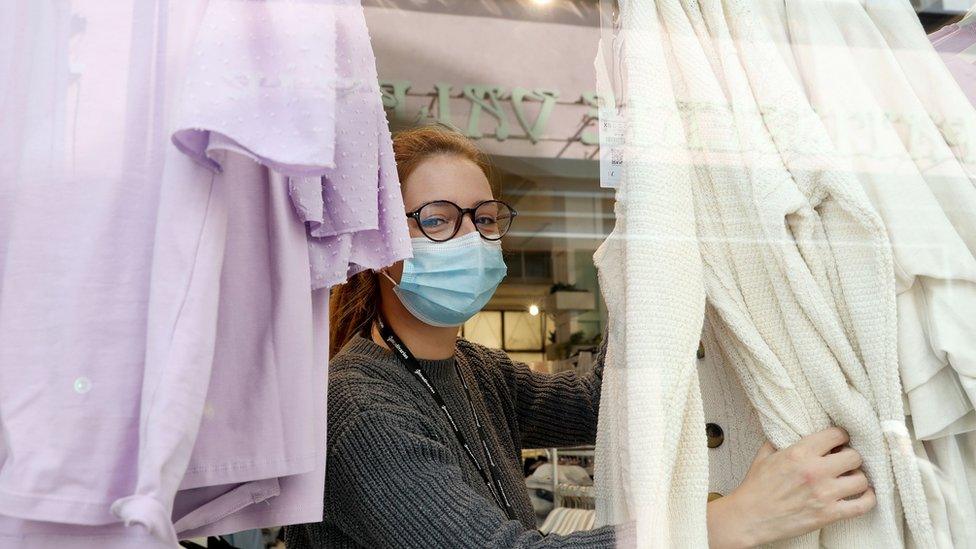
- Published23 December 2020
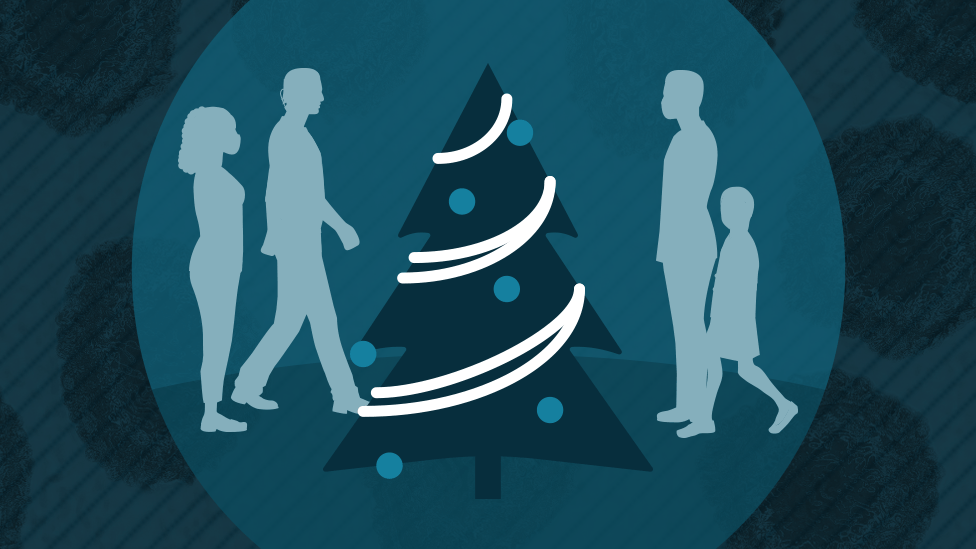
- Published26 November 2020
